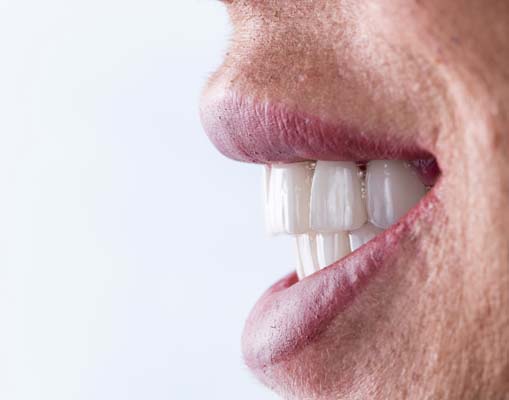Common Questions and Answers About Implant Supported Dentures

Implant-supported dentures are often preferred over their conventional counterparts due to the excellent stability they provide and their bone preserving properties. Unlike traditional dentures, which rest on the wearer’s gums and are held in place via suction, implant-supported dentures are attached to implants that are strategically inserted into the patient’s jaw.
Implants-supported dentures FAQs
Thinking about giving implant-supported dentures a try? Here are answers to some of the questions you might have about these oral prosthetics:
1. What is the process of getting implants like?
Implants are surgically placed into a patient’s jawbone and they are left there to fuse with tissues around them. The process is called osseointegration and it leads to implants being almost as stable as real teeth roots. It can take up to six months for the process of osseointegration to be completed.
2. Are implant dentures better than conventional ones?
Traditional dentures are known to move around when worn. This can lead to sores forming as the rigid structure of the dentures rubs against soft tissues like the cheeks. The poor stability of traditional dentures also makes it more difficult to eat or speak with them. Denture wearers often need a month or more to adjust to the restoration and some people never become comfortable with them.
Implant dentures do not move when worn, leading to an improved experience for the wearer. This leads to a variety of benefits like improved comfort, speech and appearance. Implant dentures also help to prevent the bone tissue loss that is often associated with losing teeth.
3. How are implants installed?
Getting implants requires minor oral surgery. The dentist might need to cut into the patient’s gums to expose the jaw. Holes are then drilled into the jawbone and implants are shoved into the holes until the bone tissues around them hold them in place. Any incisions made are sutured up to complete the installation.
The patient is then given up to six months for the implants to fuse with bone tissues around. Attachments are fitted to the implants and these are used to hold their dentures in place.
4. Who qualifies for implants?
Patients need to be healthy to go through oral surgery. Conditions like immune system disorders and diabetes weaken the immune system. Patients with these types of conditions might have to explore other options. Medications like blood thinners also impact a person’s ability to recover after surgery.
Patients should be willing to give up drinking, smoking or the use of recreational drugs before getting implants. Such habits can slow down the recovery process after surgery.
5. Are implant dentures removable?
Implant-supported dentures can be removable or fixed in place. Many patients prefer the latter since it allows them to get back to how life was before they lost their teeth. The special dentures used do not require any additional care besides good oral hygiene.
We can replace your missing teeth
Call or visit our Pataskala clinic to learn more about how implant dentures can be used to replace your missing teeth.
Request an appointment here: https://gladuradds.com or call Gladura Dental at (740) 780-0619 for an appointment in our Pataskala office.
Check out what others are saying about our dental services on Yelp: Implant Supported Dentures in Pataskala, OH.
Related Posts
Many patients ask what makes a deep teeth cleaning different from a routine visit for a checkup. The short answer is that a routine visit every six months focuses on prevention, while a deep teeth cleaning targets active gum infection. Both appointments support oral health, yet they serve different needs. Learning more about the differences…
The general dentist often uses a dental filling as a restoration procedure for teeth damaged due to decay. Unless the tooth is severely damaged and needs a root canal and a crown, only the tooth filling will be enough. It is better to visit the dentist regularly for checkups, so decay not get too severe.The…
Dental bridges replace missing teeth, restoring smile appearance and bite function. They are noninvasive tooth replacements that rely on the surrounding teeth or dental implants for support. A general or cosmetic dentist will create a dental bridge custom-fit to the patient’s smile, ensuring a natural-looking restoration and optimal oral health.Dental bridges are named for the…
Visiting a cosmetic dentist is the first step to transforming the appearance of the smile through personalized dental services. While cosmetic improvements are the primary focus, consultations often begin with a thorough evaluation of oral health to ensure a solid foundation for lasting results. Understanding how to prepare for this appointment not only improves communication…
